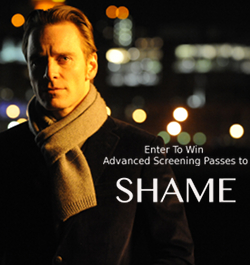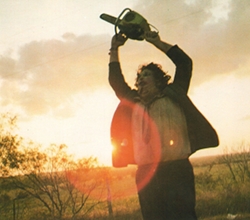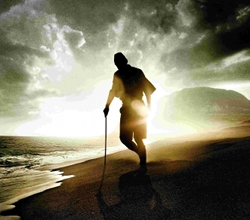Review: The Twilight Saga: Breaking Dawn – Part 1 (2011)
The authoritarian tinged catalysts that have laid Bella Swan’s (Kristen Stewart) path to this point of The Twilight Saga come variegated in Bill Condon’s installment, Breaking Dawn – Part 1, a work that invests less in the dogmatic inanity of manufactured mythos – drinking and pre-marital sex are bad, m’kay – and instead, in a gesture portended by the ceremonies that dotted the antecedent films (the prom in Twilight, Bella’s graduation in Eclipse), employs traditional social mileposts as stepping stones for the girl’s premature coming-of-age climax. Here in Breaking Dawn it’s marriage, the according post-reception coitus, and an ensuing, albeit unexpected, slip into motherdom that gate the young Swan’s all-too-tidy maturational trek, social markers she hurries past with an expectedly puerile sense of urgency. Rather than glean any semblance of perspective from the proceedings, Swan continues to let her hormonal momentum snowball to the point where “She’s gotta have it” becomes an appropriate subtitle to the picture’s first act – her eagerness to bang her 100-year old husband, Edward (Robert Pattinson), only reinforces the idea that her affectionate impetuses lie more in the security of class-privilege and ostensible vitality than genuine, understood emotion.
But these schematic misgivings result mostly from the source material. Stephenie Meyer’s novels unconsciously force the idea of flowering femininity into rigid social molds, in turn causing her protagonist to be but a creature of dependence and order. What’s pertinent here, however, is mostly Condon’s interpretation of the film’s literary foundation – where he chooses to stamp his own authorial emphasis. The Twilight films as a whole are a somewhat unique commodity where, ostensibly, the director called upon for the project is of no real consequence. Inherent to each installment, however, is a murmur of the self-aware, a sense for the looking glass self that tellingly caters to the dynamic of product and consumer. Whereas David Slade’s Eclipse made sardonic allusion to both the overt sexualization of Jacob Black (Taylor Lautner) and the flamboyantly oneiric aesthetic housed in its own didactic predecessor, New Moon, Condon’s Breaking Dawn eschews sincerity entirely by taking the form of a feckless and stolidly constructed patch-quilt. Throughout this chapter of Twilight imagination seems like an allergen in the realm of dialogue, as characters spout off awkwardly with unflinching emotional and expositorial forthrightness; inexplicably sequenced close-ups roll out a pageant of overgesticulative near-camp, highlighting rather than guising its actors’ inefficiencies; songs are called upon to augment an absurd number of scenes as a way to further explicate the already unsubtle display of feelings; and embarrassingly nonchimerical hallucination sequences aim for surreality but never exceed construction-paper collage. To be sure, the more fervid matters of Breaking Dawn are, by default, comprehensively facile, but Condon handles the material with a humorously derisive hue. Buried beneath Meyer’s puerile musings on emotional – and more important contemporary female – ecology and Condon’s aggressively flaccid formal veneer is a foundation of definitively contemptuous origin; well, either that, or the man is one of the world’s foremost cinematic clods.
Whether this seemingly parodic slant is intendedly astringent or simply a forfeiture of effort is yet to be seen, but it can and should be noted that Breaking Dawn – Part 1 is clearly a work entrenched in enervation. Aside from Condon’s apparently rebellious mettle, the picture adds nothing in way of substance or provocation to Swan’s debate with issues of morality and priority; worse, these should-be efferent notions are generally predetermined by the same brazen sociocultural agents that have littered the previous outputs. In this, the film becomes yet another exercise in ethical cosmetics for The Twilight Saga, a totemic vision of calculated righteousness that’s passed off as its protagonist’s ever-honorable intuitive reasoning. As in its precursors, Breaking Dawn – Part 1, despite Condon’s blithe directorial indifference, is still a picture that lacks the concern and probity to be anything other than cinematically ignorant and parasitically consumerist.












 Review: Outrage (2010)
Review: Outrage (2010) Subversive Saturdays: Unglassed Windows Cast a Terrible Reflection
Subversive Saturdays: Unglassed Windows Cast a Terrible Reflection Review: Hugo (2011)
Review: Hugo (2011) Review: The Muppets (2011)
Review: The Muppets (2011) Review: The Muppets (2011)
Review: The Muppets (2011)





